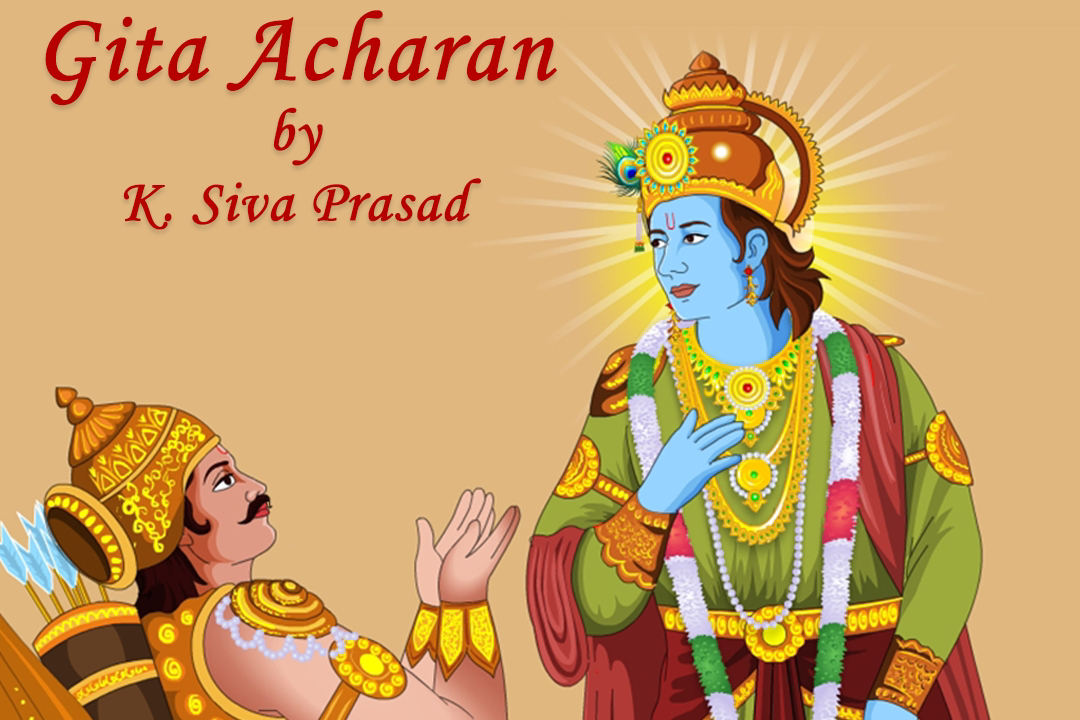40. Dropping Sense of Doership

In the verse 2.48, Krishna asks Arjun, "To be steadfast in yoga ( yoga being equanimity) while performing karma (actions) by renouncing the sangam (union/identify) with polarities like success and failure." In other words, whatever we do would be harmonious when we stop identifying with polarities. Our daily life involves making a series of decisions and choices. The ever judging mind keeps choosing from the available options and Krishna categorises them into pleasure/pain, profit/loss, win/lose (2.38) and success/failure. Equanimity is to treat polarities as equal which is ordinarily referred to as transcending them. When this realisation sinks in, the mind becomes powerless and achieves choiceless awareness. It's the ability to be non-judgmental while we are still capable of judging but not being asleep, intoxicated or sedated. It's being alive in the present moment by just being an observer. The practical route to attain equanimity while performin



